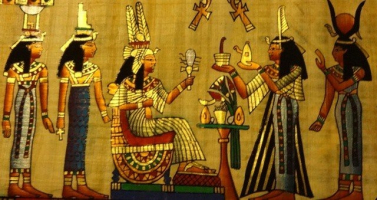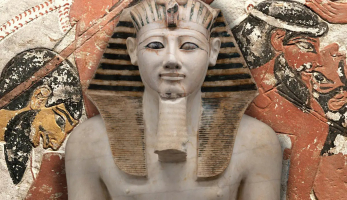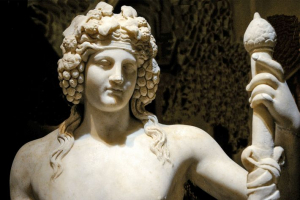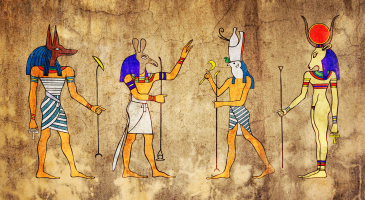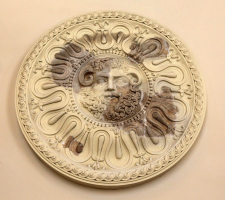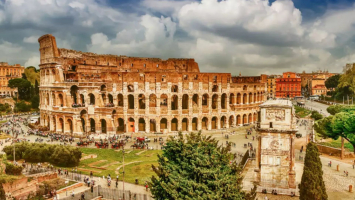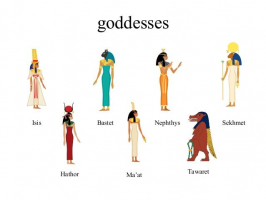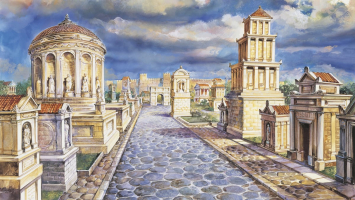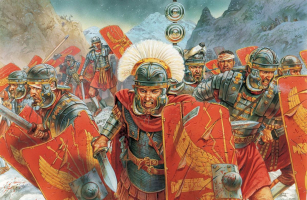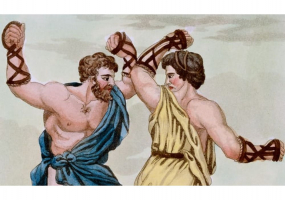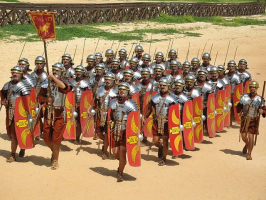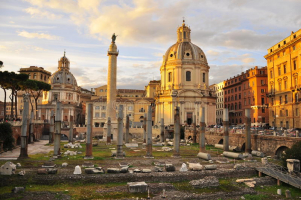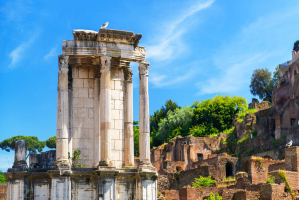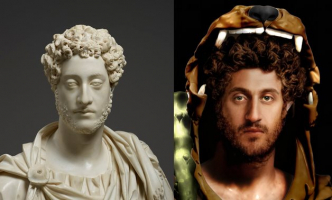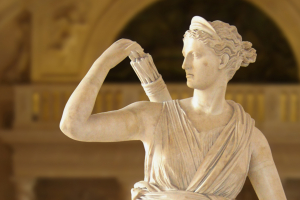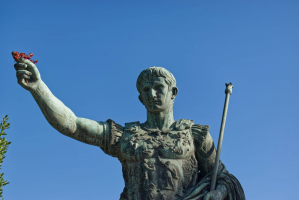Top 10 Most Famous Ancient Roman Gods
Religion in ancient Rome consisted of several imperial and provincial religious rituals practiced by both the inhabitants of Rome and those brought under its ... read more...dominion. The Romans considered themselves to be deeply religious, and their success as a world power was attributed to their collective piety (pietas) in keeping good connections with the gods. Their polytheistic religion is notable for honoring many deities. Here are the 10 most famous Ancient Roman gods.
-
One of the most famous Ancient Roman gods is Jupiter. In ancient Roman religion and mythology, Jupiter is the deity of the sky and thunder, as well as the king of the gods. Throughout the Republican and Imperial eras, Jupiter was the principal deity of Roman official religion, until Christianity became the Empire's dominant religion. In Roman mythology, he bargains with Numa Pompilius, Rome's second king, to establish Roman religious ideas such as offering or sacrifice.
Jupiter is commonly regarded to have begun as a sky god. His distinguishing weapon is the thunderbolt, and his major holy animal is the eagle, which took precedence over other birds in the taking of auspices and became one of the most common Roman army insignia. The two emblems were frequently combined to symbolize the god in the shape of an eagle carrying a thunderbolt in its claws, as seen on Greek and Roman coins. He was a divine witness to oaths, the sacred trust on which justice and good government rely. Many of his activities were centered on Capitoline Hill, which housed the citadel. With Juno and Minerva, he was the principal guardian of the state in the Capitoline Triad. The oak was his sacred tree.
The Romans considered Jupiter as the equivalent of the Greek Zeus, and the stories and iconography of Zeus are adopted under the name Iuppiter in Latin literature and Roman art. Jupiter was the Greek-influenced brother of Neptune and Pluto, the Roman equivalents of Poseidon and Hades, respectively. Each ruled over one of the universe's three realms: the sky, the waters, and the underworld. The Italic Diespiter was a sky god who showed himself in daylight and was commonly associated with Jupiter. Tinia is considered his Etruscan counterpart.
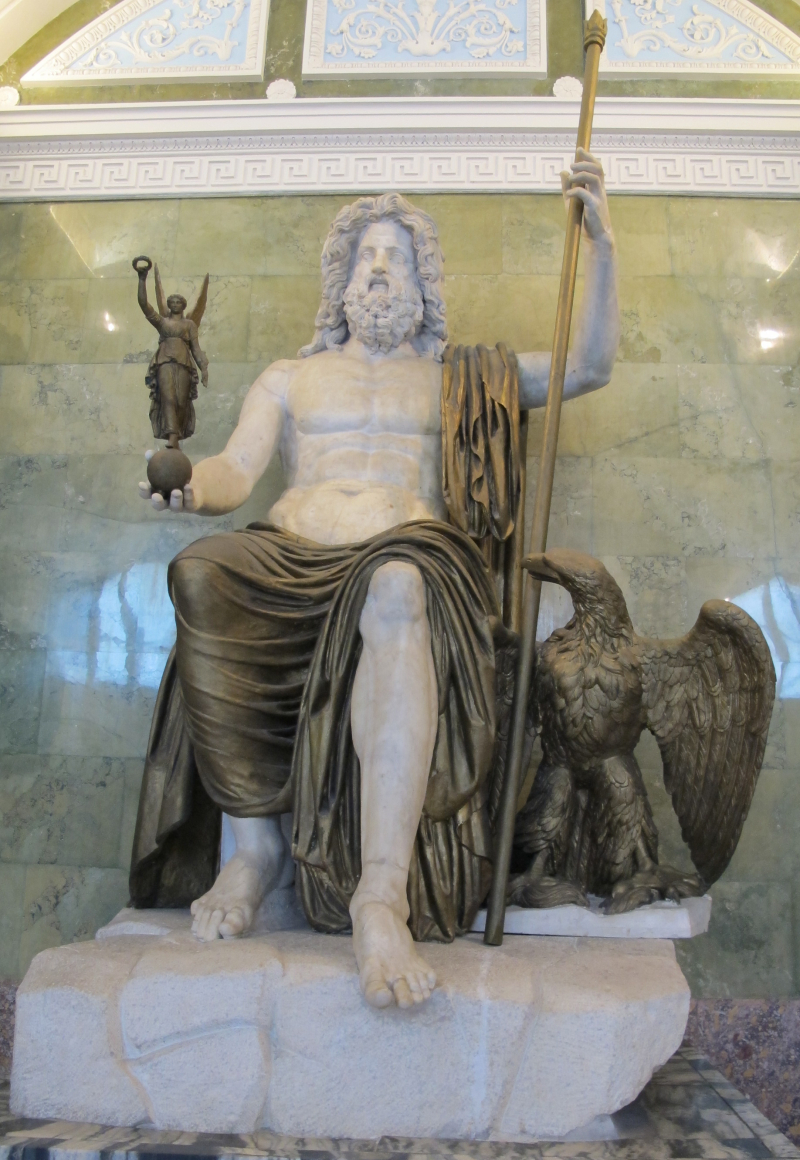
en.wikipedia.org 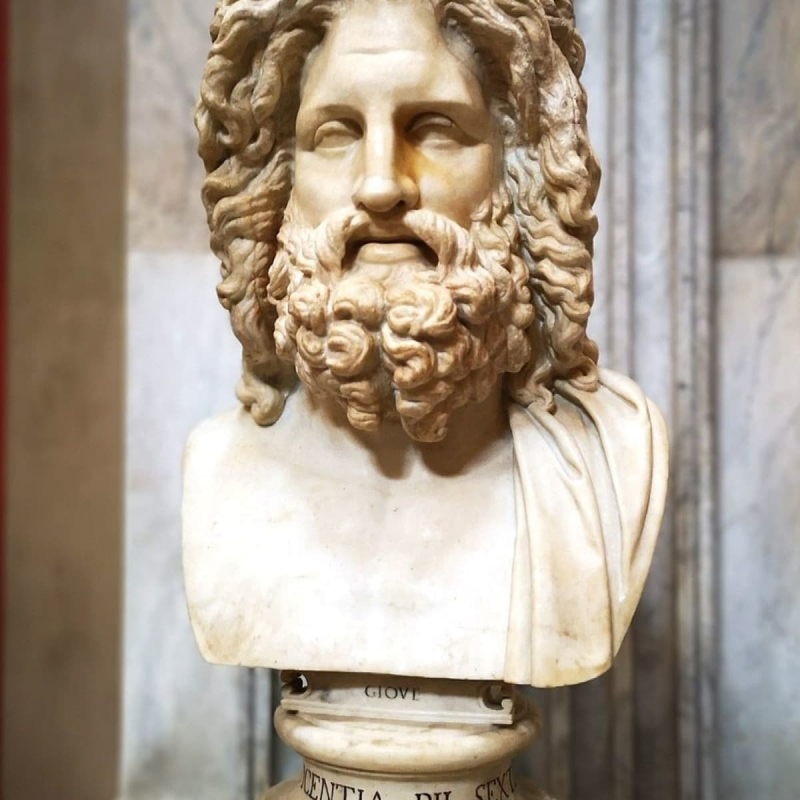
owlcation.com -
In Roman religion, Neptune is the deity of freshwater and the sea. He is the Greek god Poseidon's polar opposite. In Greek mythology, he is a brother of Jupiter and Pluto, who ruled over the realms of heaven, earth (including the underworld), and the oceans. Salacia is his wife's name. Neptune depictions in Roman mosaics, particularly in North Africa, were influenced by Hellenistic customs. He was most likely linked to freshwater springs before the sea. The Romans, like Poseidon, worshiped him as Neptunus equestris, the deity of horses (a patron of horse racing).
Neptune's theology is limited by his tight affiliation with the Greek god Poseidon, one of many Greek pantheon members whose theology was eventually related to a Roman deity. According to the lectisternium of 399 BC, the Greek figures of Poseidon, Artemis, and Heracles were brought and worshiped in Rome as Neptune, Diana, and Hercules. Because the Indo-Europeans lived inland and had little direct knowledge of the sea, the Romans may have reused the theology of a previous freshwater god in their worship of Neptune. Neptune is expressly named by Servius as the deity of rivers, springs, and waterways; he may be related to the Irish god Nechtan, lord of rivers and wells.
Neptune has been linked to a number of other Roman gods. He had displaced Portunus as the deity of naval victory by the first century BC; Sextus Pompeius referred to himself as the "son of Neptune." For a time, Neptune's dominion over the sea was shared with Salacia, the goddess of saltwater. Neptune was regarded as the fabled progenitor god of the Falisci (also known as Neptunia proles), standing with Mars, Janus, Saturn, and Jupiter as the deific father of a Latin tribe.
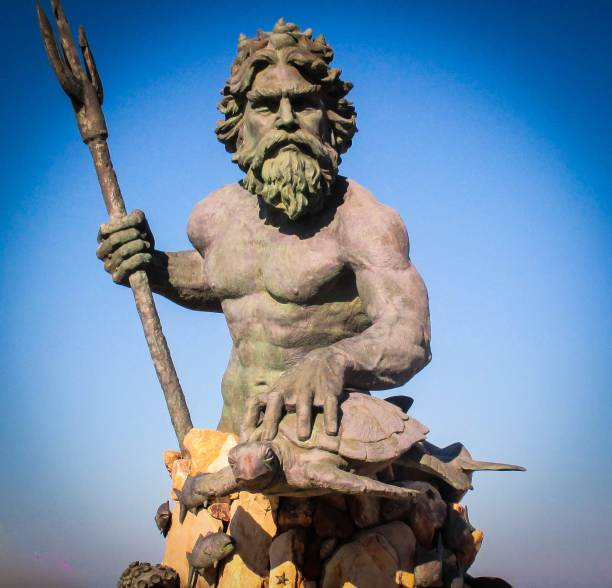
istockphoto.com 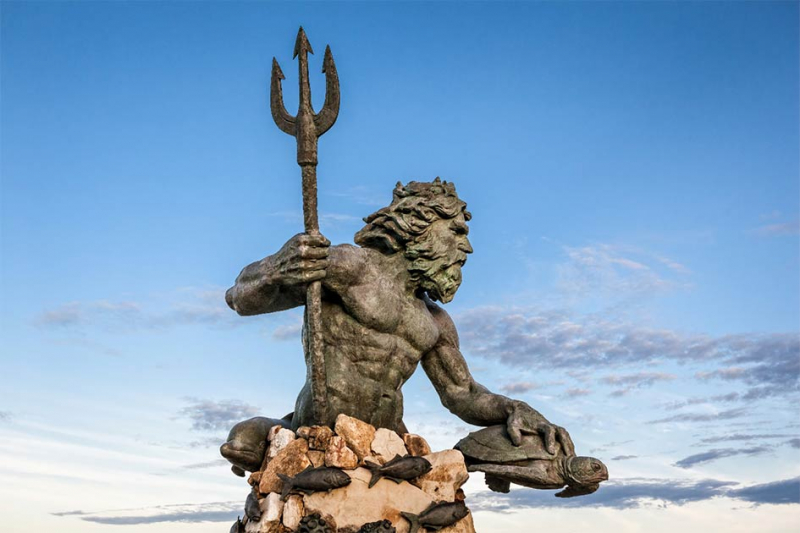
ancient-origins.net -
One of the most famous Ancient Roman gods we want to introduce to you is Pluto. Pluto was the king of the Greek underworld in ancient Greek religion and mythology. The god's previous name was Hades, which became more popular as the name of the underworld itself. Pluto is a more positive representation of the god who rules over the afterlife. Ploutn was frequently confused with Ploutos, the Greek god of wealth, because mineral wealth was discovered underground and because Pluto, as a chthonic god, ruled the deep earth, which housed the seeds for a plentiful crop. The term Ploutn became popular during the Eleusinian Mysteries when Pluto was revered as both a strict ruler and a loving spouse to Persephone. The couple got souls in the afterlife and are invoked as Plouton and Kore, respectively, in religious inscriptions. In contrast, Hades was affiliated with a few temples and religious rites, and he is portrayed as the dark and brutal abduction of Persephone.
Pluto and Hades have different personalities, but they are not separate characters that share two major myths. In Greek cosmogony, the deity was given control of the underworld as part of a three-way division of world sovereignty, with his brother Zeus overseeing the sky and his other brother Poseidon ruling the sea. In myth, his major narrative is that he abducts Persephone to be his wife and queen of his realm. Plouton as the name of the underworld monarch first appears in Classical Greek literature, in the works of Athenian playwrights and the philosopher Plato, who is the principal Greek source of its significance. Under the name Pluto, the god appears in various tales in a secondary role, usually as the possessor of a quest object, and especially in Orpheus' or other heroes' trip into the underworld.
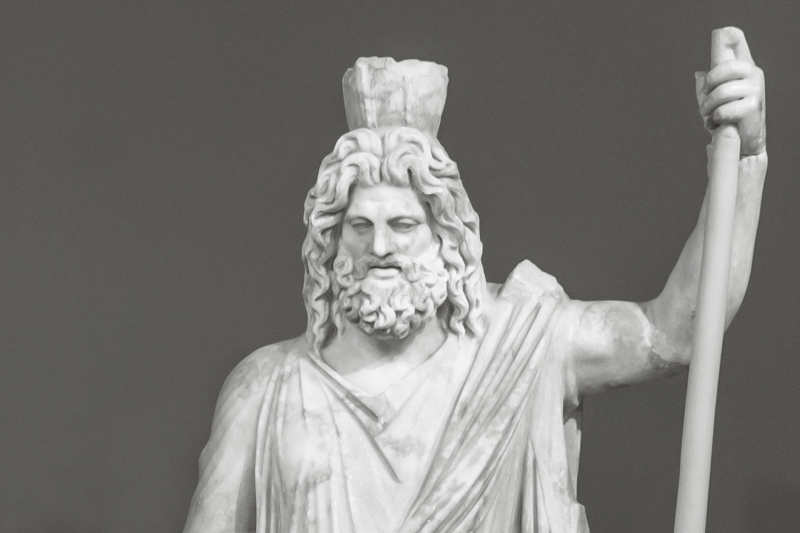
mythopedia.com 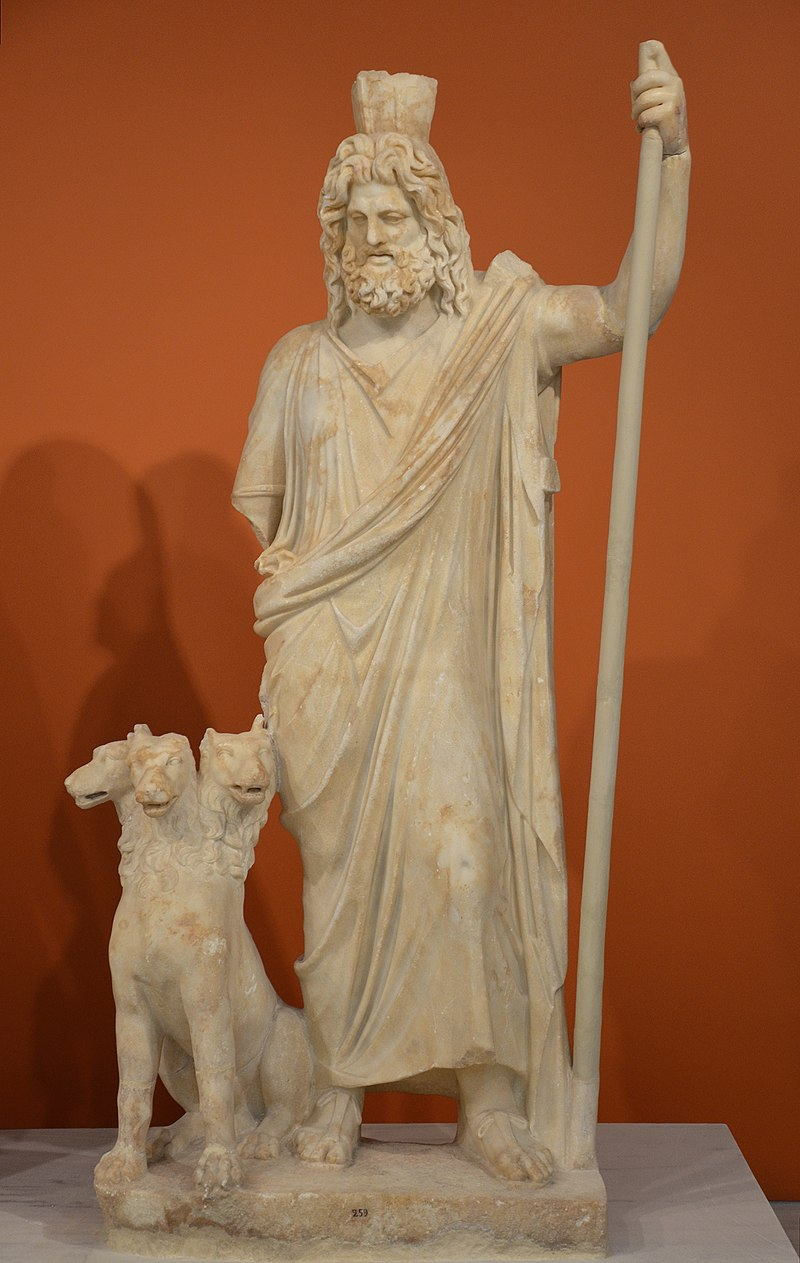
vi.wikipedia.org -
Apollo is an Olympian deity in classical Greek and Roman religion, as well as Greek and Roman mythology. Apollo, the Greek national divinity, has been identified as a god of archery, music and dance, truth and prophecy, healing and diseases, the Sun and light, poetry, and other things. He is the son of Zeus and Leto, and the twin brother of Artemis, the goddess of the hunt. He is one of the most prominent and complex Greek gods. Apollo is regarded as the most handsome deity and the ideal of the kouros (ephebe, or a beardless, athletic youth). He is also regarded as the most Greek of all the gods. Apollo is an oracular god, the prophetic deity of the Delphic Oracle, as the patron deity of Delphi (Apollo Pythios). Apollo is the god who provides assistance and protects against evil; different epithets refer to him as the "averter of evil." Delphic Apollo is the patron of sailors and foreigners, as well as fugitives and refugees.
Medicine and healing are associated with Apollo, whether directly through the god or through his son Asclepius. Apollo saved people from plagues, but he is also a deity who can bring disease and death with his arrows. Apollo and his sister Artemis are credited with inventing archery. Apollo is typically depicted with a silver or golden bow and a quiver of silver or golden arrows. Apollo is typically depicted with a silver or golden bow and a quiver of silver or golden arrows. One of the most well-documented aspects of Apollo's panhellenic cult character is his ability to help young people mature. Apollo, as a guardian of the young, is concerned with children's health and education. He oversaw their maturation into adults. Long hair, which was considered a boy's prerogative, was cut at the age of maturity and devoted to Apollo.
Apollo is a pastoral deity who was the patron of herders and shepherds. His primary responsibility was to protect herds, flocks, and harvests from diseases, pests, and predators. On the other hand, Apollo promoted the development of new towns and the formation of a civic constitution. He is related to colonial dominion. He was the giver of laws, and before establishing laws in a city, his oracles were consulted.
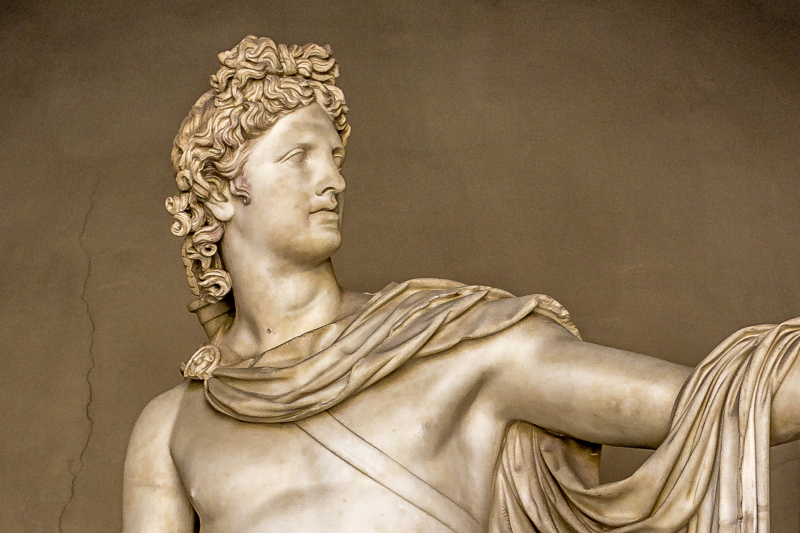
mythopedia.com 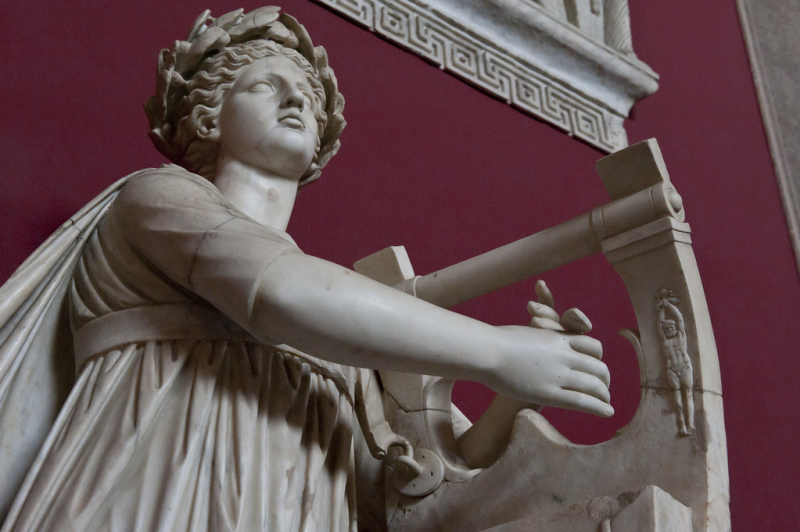
flickr.com -
Mars was the god of war and also an agricultural guardian in ancient Roman religion and myth, a combination that was common in early Rome. He was the son of Jupiter and Juno, and he was the most powerful of the Roman army's military gods. The majority of his festivals were held in March, the month named after him (Latin Martius), and in October, which began the military campaigning season and finished the crop season.
Mars was connected with the Greek god Ares, whose myths were recast in Roman literature and art under the name of Mars, due to the influence of Greek culture. Mars' character and dignity differed significantly from that of his Greek equivalent, which is frequently addressed with scorn and repulsion in Greek literature. Numa, the peace-loving semi-legendary second king of Rome, is said to have erected Mars' shrine in Campus Martius, the area of Rome that bears his name; during Republican times, it was a focal point of electoral activities. Augustus transferred the focus of Mars' cult to within the pomerium (Rome's ritual boundaries), and as a prominent religious feature of his new forum, he built a temple to Mars Ultor.
Unlike Ares, who was considered largely a destructive and disruptive force, Mars symbolized military might as a means of securing peace and was the Roman people's father (pater). Mars fathered Romulus and Remus through his rape of Rhea Silvia, according to Rome's mythological ancestry and origin. Venus was the divine mother of the hero Aeneas, remembered as the Trojan refugee who "founded" Rome several centuries before Romulus built out the city walls.
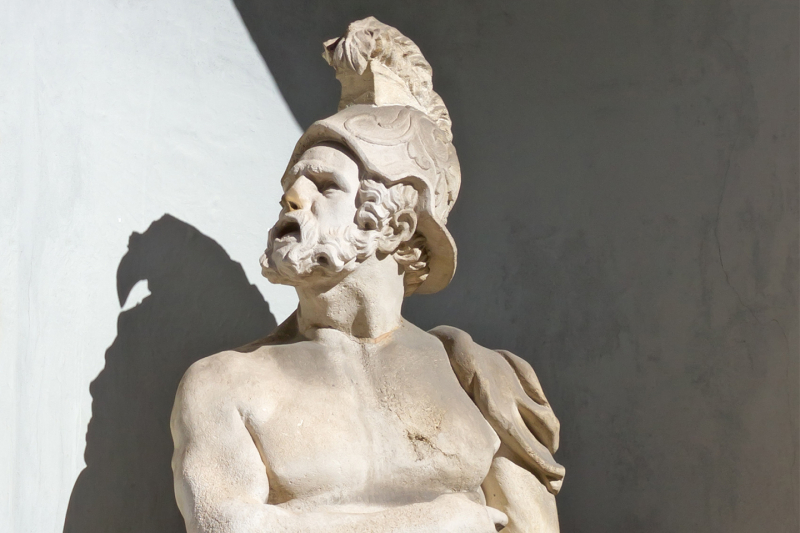
mythopedia.com 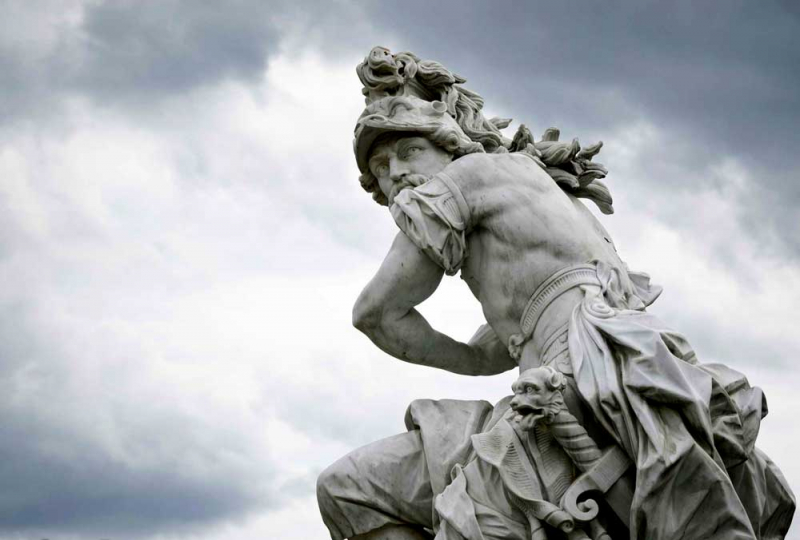
whats-your-sign.com -
Cupid is the Greek deity of desire, erotic love, attraction, and affection. He is frequently shown as the son of Venus, the goddess of love, and Mars, the god of battle. He is also known as Amor in Latin ("Love"). Eros is his Greek equivalent. Although Eros is typically depicted as a slim winged youngster in Classical Greek art, he was frequently depicted as a plump boy throughout the Hellenistic period. During this period, his iconography acquired the bow and arrow, which represent his source of power: a person, or possibly a deity, shot by Cupid's arrow and filled with unbridled passion. Cupid is a minor character in myths who mostly helps to set the tale in motion.
Only in the story of Cupid and Psyche is he the major character, and he goes through the trial of love after being wounded by his own weapons. Although there are no additional extensive stories about him, his legacy is rich in poetic concepts and visual scenes, such as "Love conquers all" and Cupid's retaliatory punishment or torture.
Cupid was a popular figure in the Middle Ages when he often had a dual nature as Heavenly and Earthly love under Christian influence. A fresh interest in ancient philosophy throughout the Renaissance imbued him with rich metaphorical connotations. In modern popular culture, Cupid is commonly seen drawing his bow to promote romantic love, as an icon of Valentine's Day. Cupid's abilities are comparable, but not identical, to those of Kamadeva, the Hindu god of human love.
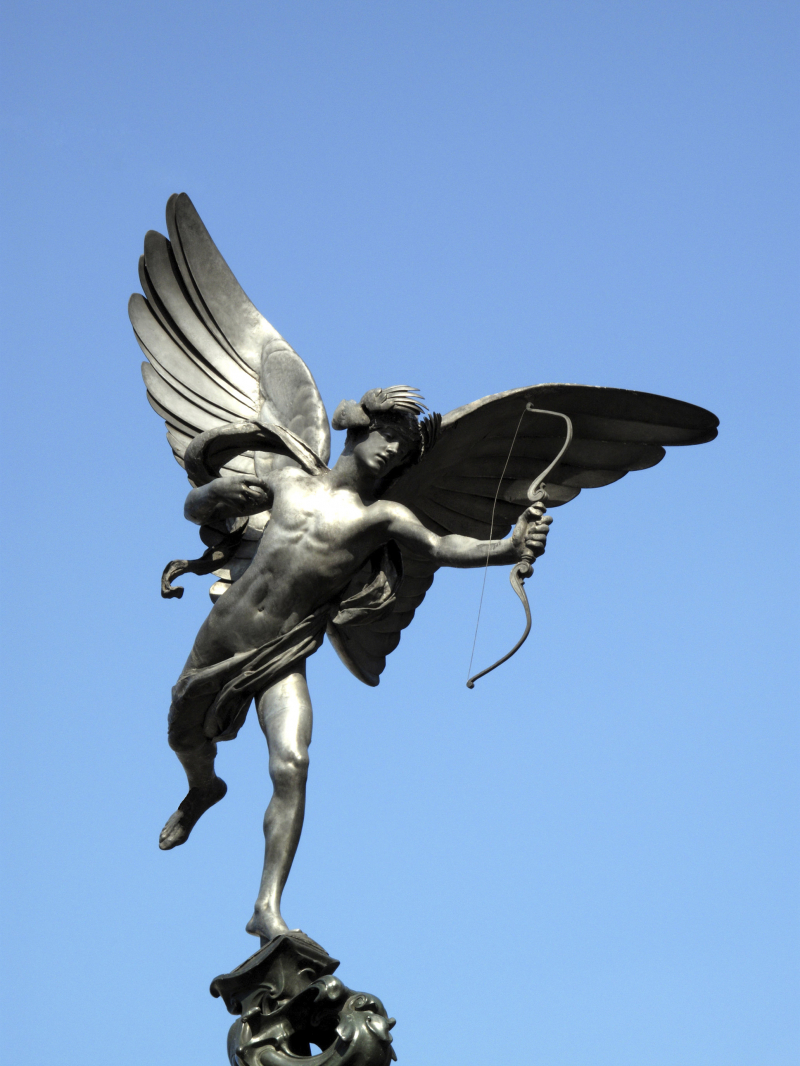
greekboston.com 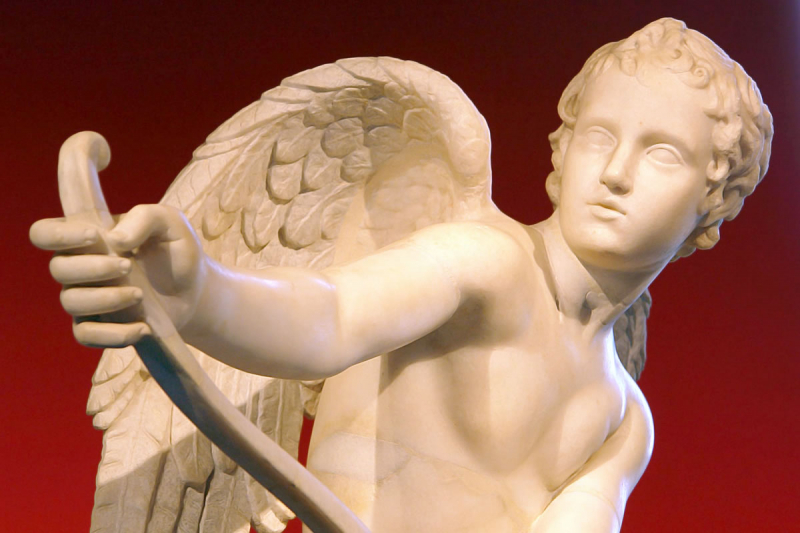
ucg.org -
Saturn was a god and a character in Roman mythology in ancient Rome. He was known as the god of time, generation, dissolution, abundance, wealth, agriculture, periodic rebirth, and liberation. Saturn's legendary reign was portrayed as a Golden Age of prosperity and harmony. He was associated with the Greek Titan Cronus after the Roman conquest of Greece. Saturn's consort was Ops, with whom he had Jupiter, Neptune, Pluto, Juno, Ceres, and Vesta as children.
Saturn was especially honored during Saturnalia, the most famous of Roman festivities, which took place each December and featured feasting, role reversals, free speech, gift-giving, and merriment. The Temple of Saturn in the Roman Forum housed the Roman Republic's and early Roman Empire's governmental treasury and archives. Both the planet Saturn and the day of the week Saturday bear his name and are associated with him.
The Roman country kept a memory of a time when Saturn and Janus reigned on the location of the city before its foundation: the Capitol was known as mons Saturnius. Saturn was associated with the Greek Cronus, whose stories were adapted for Latin literature and Roman art by the Romans. Cronus' function in the Greek gods' genealogy, in particular, was shifted to Saturn. Jupiter was said to as Saturn's son as early as the third century BCE by Andronicus.
Saturn had two mistresses who embodied various elements of the god. Ops, the Roman equivalent of Greek Rhea, implies riches, abundance, and resources. The link with Ops, on the other hand, is considered a later development, as this goddess was initially paired with Consus. Previously, Saturn was associated with Lua ("destruction, dissolution, loosening"), a goddess who received the bloodied swords of defeated opponents. In the "Golden Age" described by Hesiod and Ovid, humans enjoyed the spontaneous bounty of the earth without labor under Saturn's rule. He became renowned as the Time God.
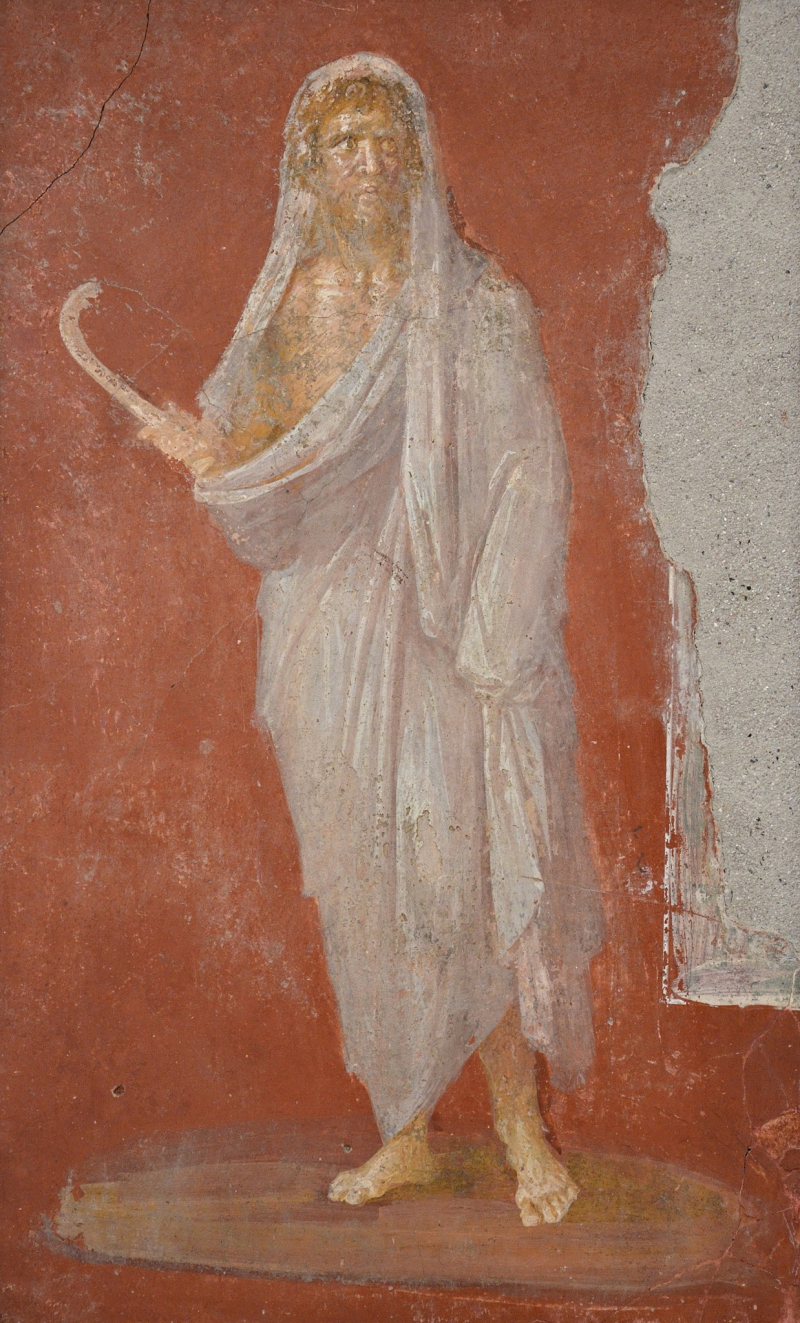
en.wikipedia.org 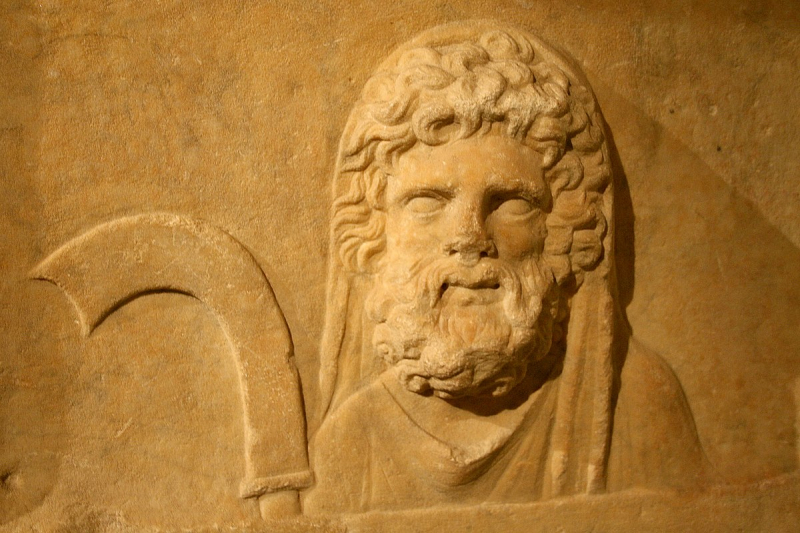
en.wikiquote.org -
One of the most famous Ancient Roman gods is Vulcan. In ancient Roman mythology and myth, Vulcan is the god of fire, especially the fire of volcanoes, deserts, metalworking, and the forge. He is frequently pictured wielding a blacksmith's hammer. The Vulcanalia was an annual festival conducted in his honor on August 23. Hephaestus, the Greek deity of fire and smithery, is his Greek equivalent. He is associated with Sethlans in the Etruscan religion. Vulcan is associated with the most primitive era of Roman religion: Varro, the ancient Roman scholar, and writer write in the Annales Maximi that king Titus Tatius dedicated shrines to a number of deities, including Vulcan.
The Vulcanal, Vulcan's oldest shrine in Rome, was located at the foot of the Capitoline in the Forum Romanum and was said to date to the archaic period of Rome's rulers, and to have been constructed on the location by Titus Tatius, the Sabine co-king, with a conventional date in the 8th century BC. The Etruscan haruspices believed that a Vulcan temple should be located outside the city, and the Vulcanal may have initially been on or beyond the city limits before they grew to include Capitoline Hill. On August 23, the Volcanalia sacrifice was offered to Vulcan here. Vulcan also had a temple on Campus Martius that was still standing in 214 BC.
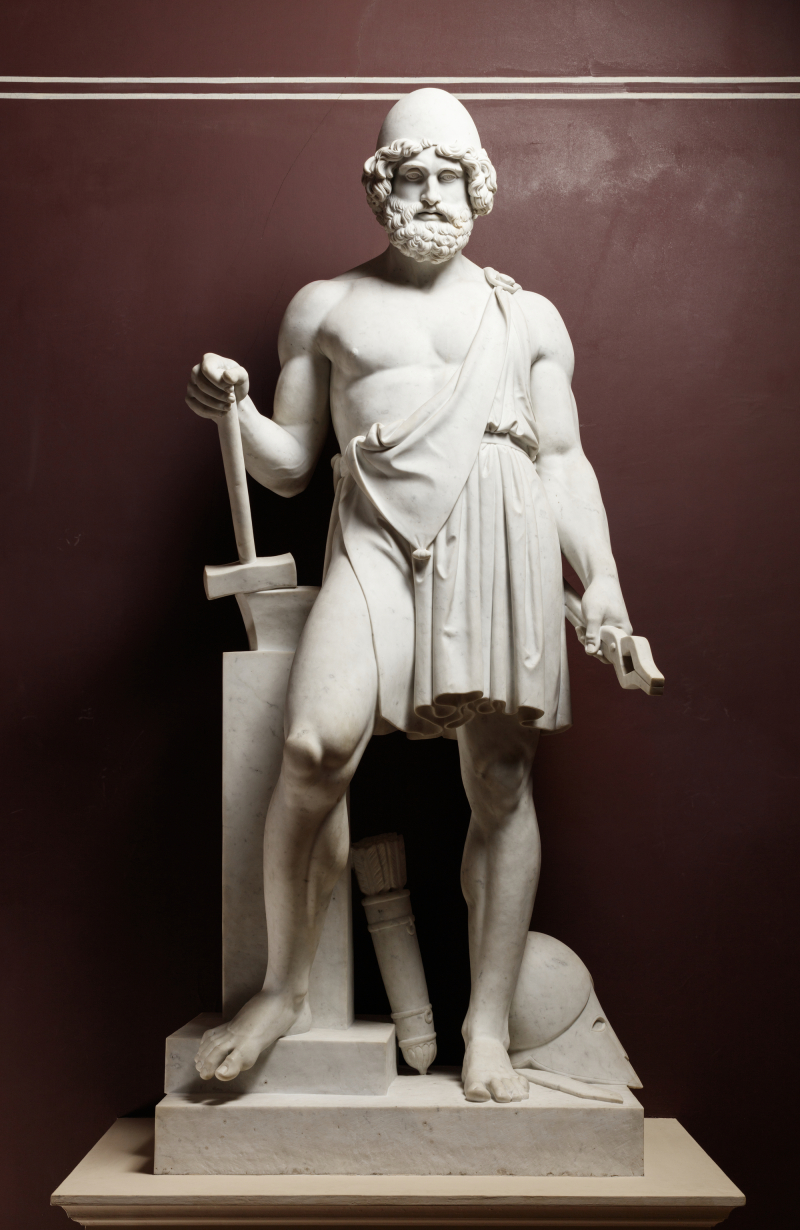
en.wikipedia.org 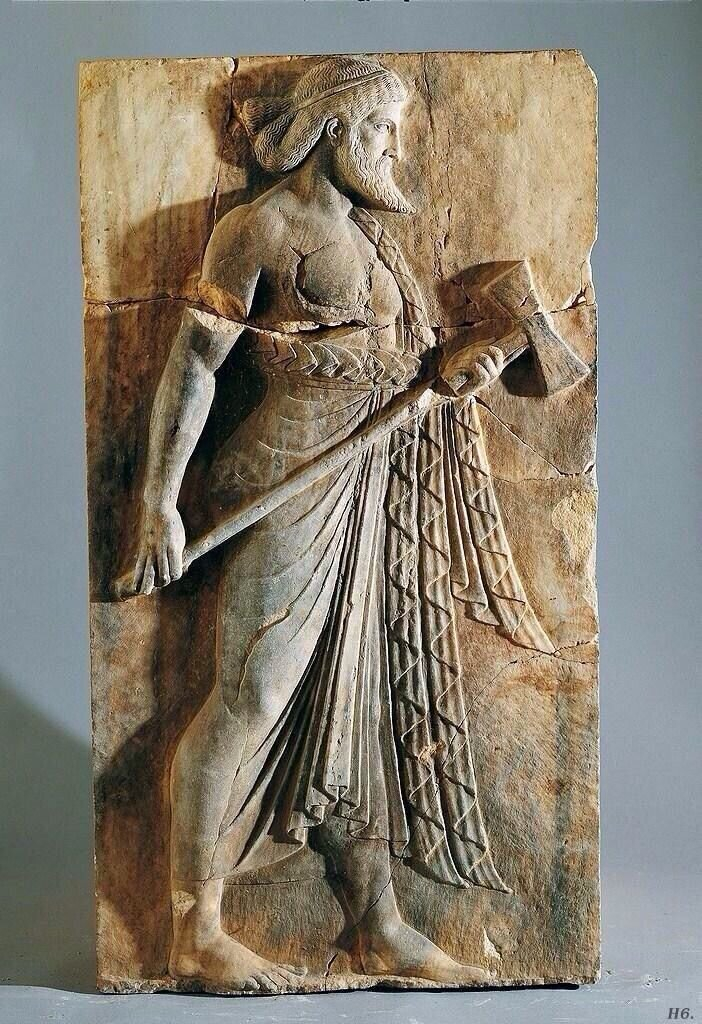
cooneyclassics.org -
Mercury is a significant god in Roman religion and mythology. He is the god of financial gain, commerce, eloquence, messages, communication (including divination), travelers, boundaries, luck, trickery, and thieves; he also serves as the underworld guide for souls.
In Roman mythology, he was either the son of Maia, one of Atlas' seven daughters, and Jupiter, or the son of Caelus and Dies. He appears to have been related to the Etruscan deity Turms in his earlier forms; both gods share traits with the Greek god Hermes. He is frequently shown with the caduceus in his left hand. Like his Greek counterpart Hermes, he was given a magic wand by Apollo, which later transformed into the caduceus, the staff with intertwined snakes.
His cult was also influenced by Etruscan religion, which bore comparable traits to Turms. Mercury had the same appearance as Hermes from the start, wearing winged shoes (talaria) and a winged cap (petasos) and carrying the caduceus, a herald's stick with two entwined snakes that was Apollo's gift to Hermes. He was frequently followed by a rooster, herald of the new day, a ram or goat, which symbolized fertility, and a tortoise, which referred to Mercury's supposed construction of the lyre from a tortoise shell.
He, like Hermes, was a deity of messengers, eloquence, and commerce, notably the grain trade. He was both the patron of travelers and the deity of stealing. Mercury was also regarded as a god of prosperity and commercial success, notably in Gaul, where he was supposed to be especially revered. He was also the Romans' psychopomp, like Hermes, escorting recently deceased souls to the afterlife. Furthermore, Ovid claimed that Mercury transported Morpheus' dreams from the valley of Somnus to sleeping mortals.
Mercury was one of the most popular Roman gods, according to archeological evidence from Pompeii. The god of commerce was represented on two early Roman Republic bronze coins, the Sextans and the Semuncia.
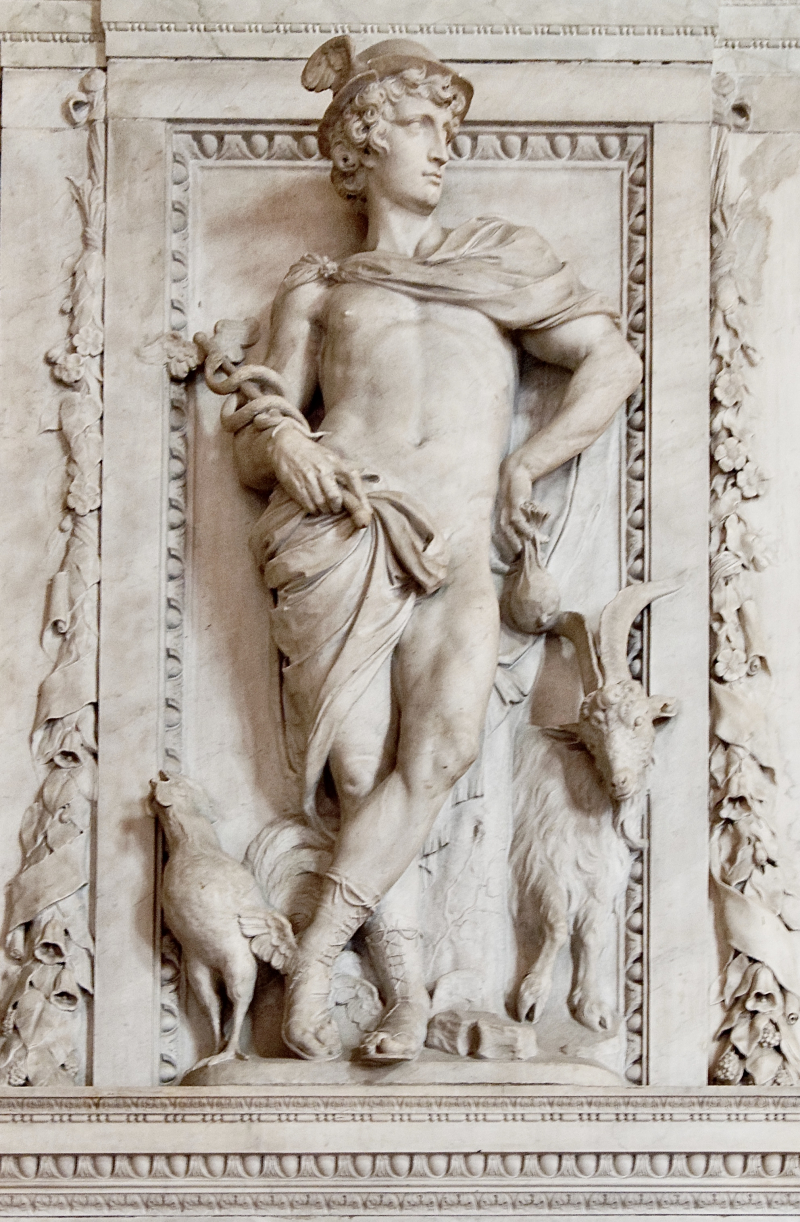
en.wikipedia.org 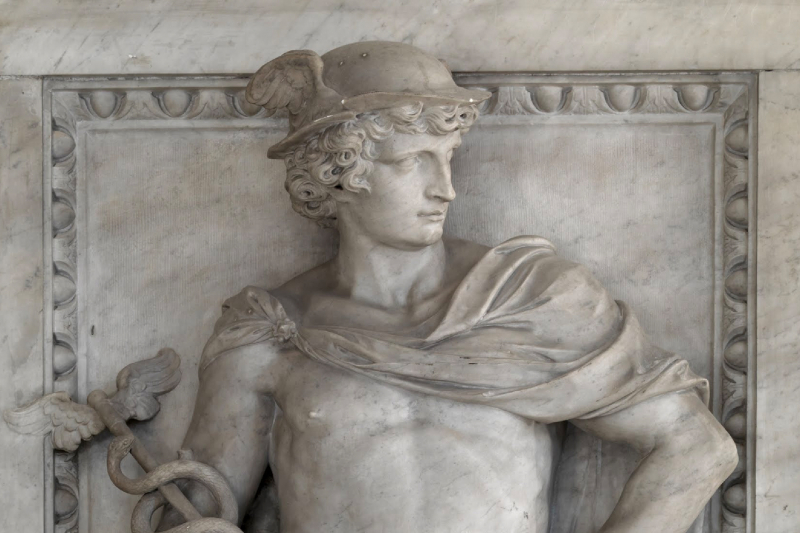
mythopedia.com -
In ancient Greek mythology and myth, Dionysus is the god of the grape harvest, winemaking, orchards and fruit, greenery, fertility, insanity, ceremonial lunacy, religious ecstasy, festivity, and theater. The Greeks also refer to him as Bacchus. His wine, music, and ecstatic dance, as Eleutherios ("the liberator"), liberate his followers from self-conscious dread and worry, and subvert the oppressive limitations of the powerful. His thyrsus, a fennel-stem scepter flowing with honey and often entwined with ivy, is both a benevolent wand and a weapon intended to slay those who oppose his cult and the freedoms he represents. Participants in his secrets are said to be possessed and empowered by the god himself.
His origins are uncertain, and his cults took several forms; some are characterized as Thracian by ancient sources, while others are described as Greek. He was either a son of Zeus and Persephone, a chthonic or subterranean aspect of Zeus, or the twice-born son of Zeus and the mortal Semele in Orphic theology. The Eleusinian Mysteries identify him as Iacchus, Demeter's son or husband. According to most sources, he was born in Thrace, moved overseas, and settled in Greece as a foreigner. As a deity of epiphany, he is sometimes referred to as "the god that comes," therefore his "foreignness" as an approaching outsider-god may be intrinsic and important to his cults.
The wine was a religious focus in Dionysus' cult and his earthly manifestation. Wine has the power to alleviate pain, bring joy, and inspire heavenly lunacy. The first driving force behind the formation of theatre in Western culture was Dionysus' festivals, which included the staging of religious dramas recreating his mythology. Dionysus' worship is also a "cult of the souls"; his maenads feed the dead with blood offerings, and he works as a divine communicator between the living and the dead. He is also referred to be a dying and rising god.
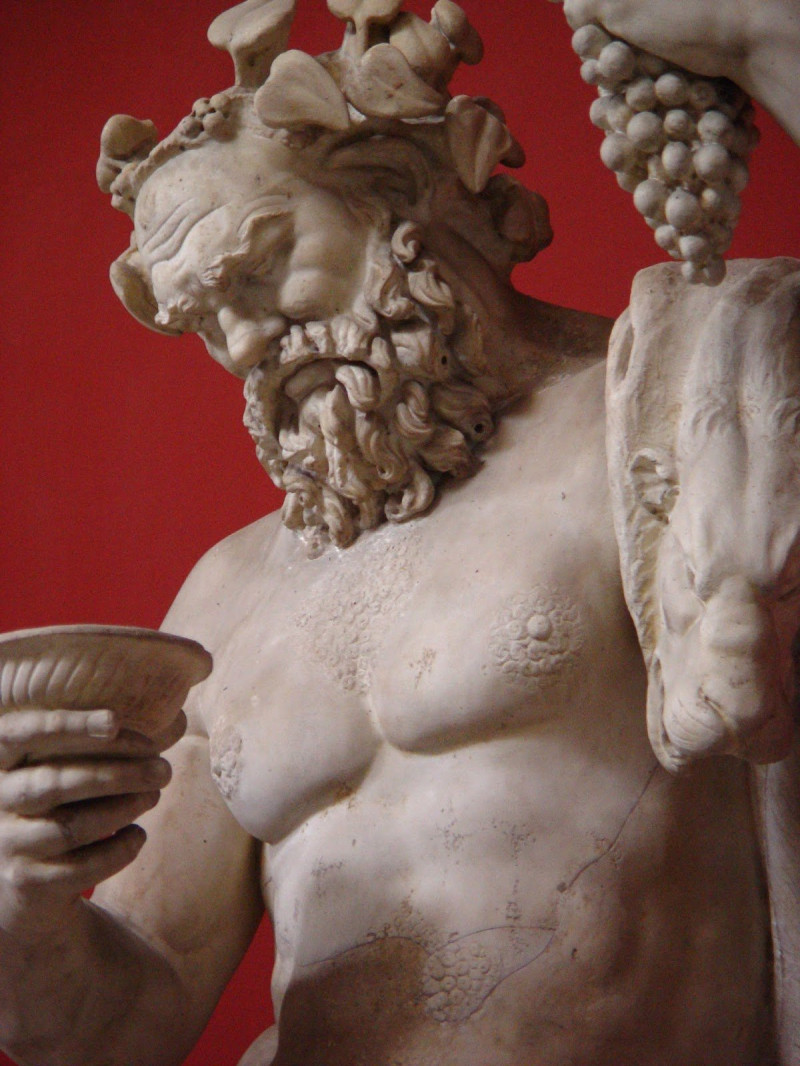
greekmythology.com 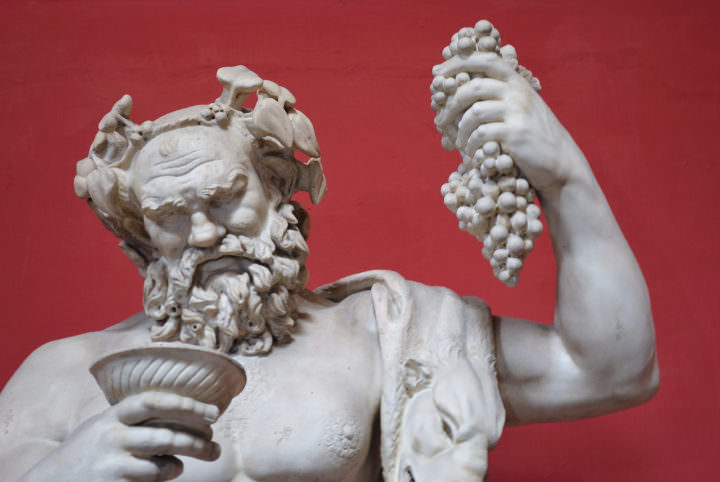
greekboston.com













